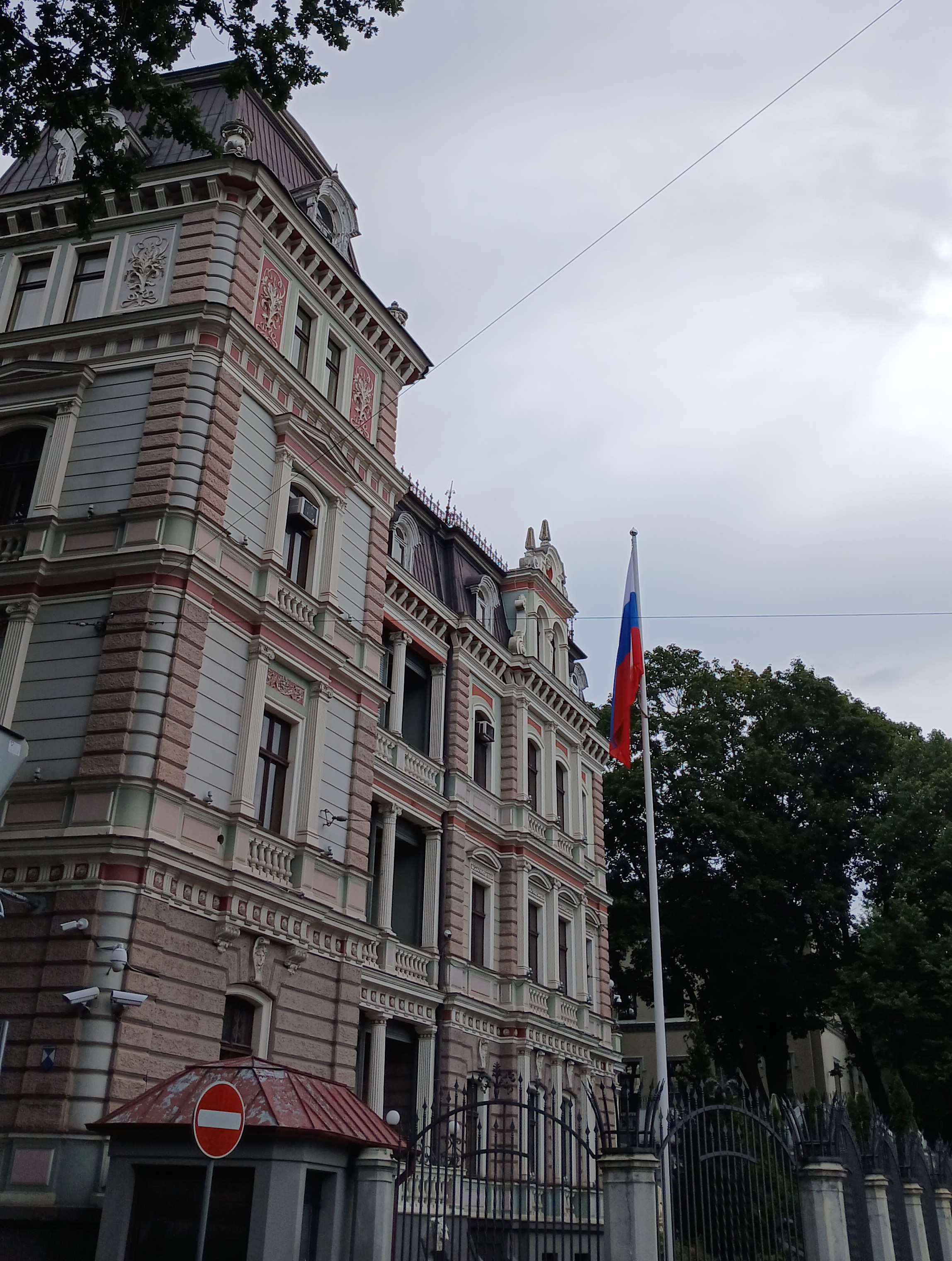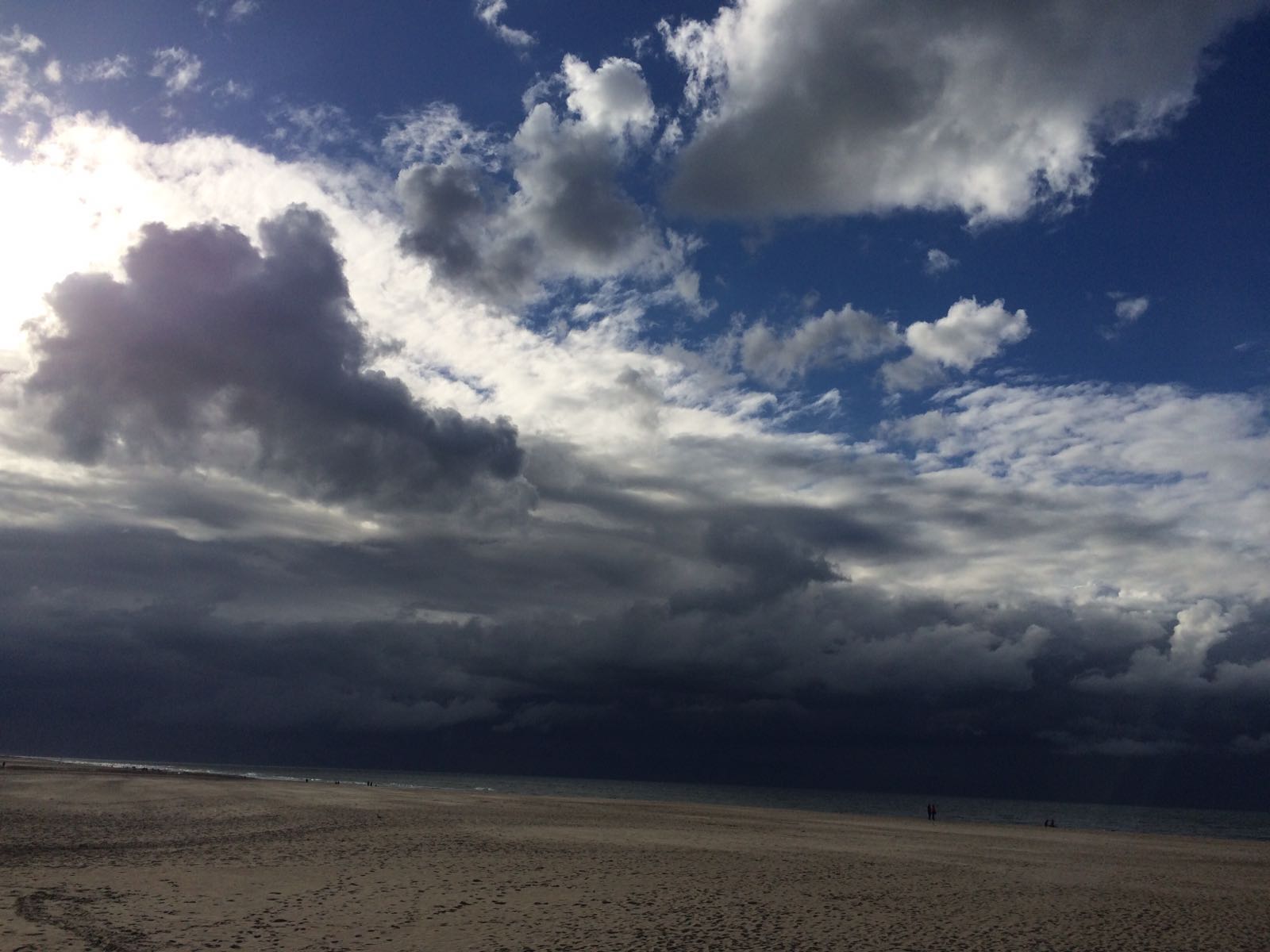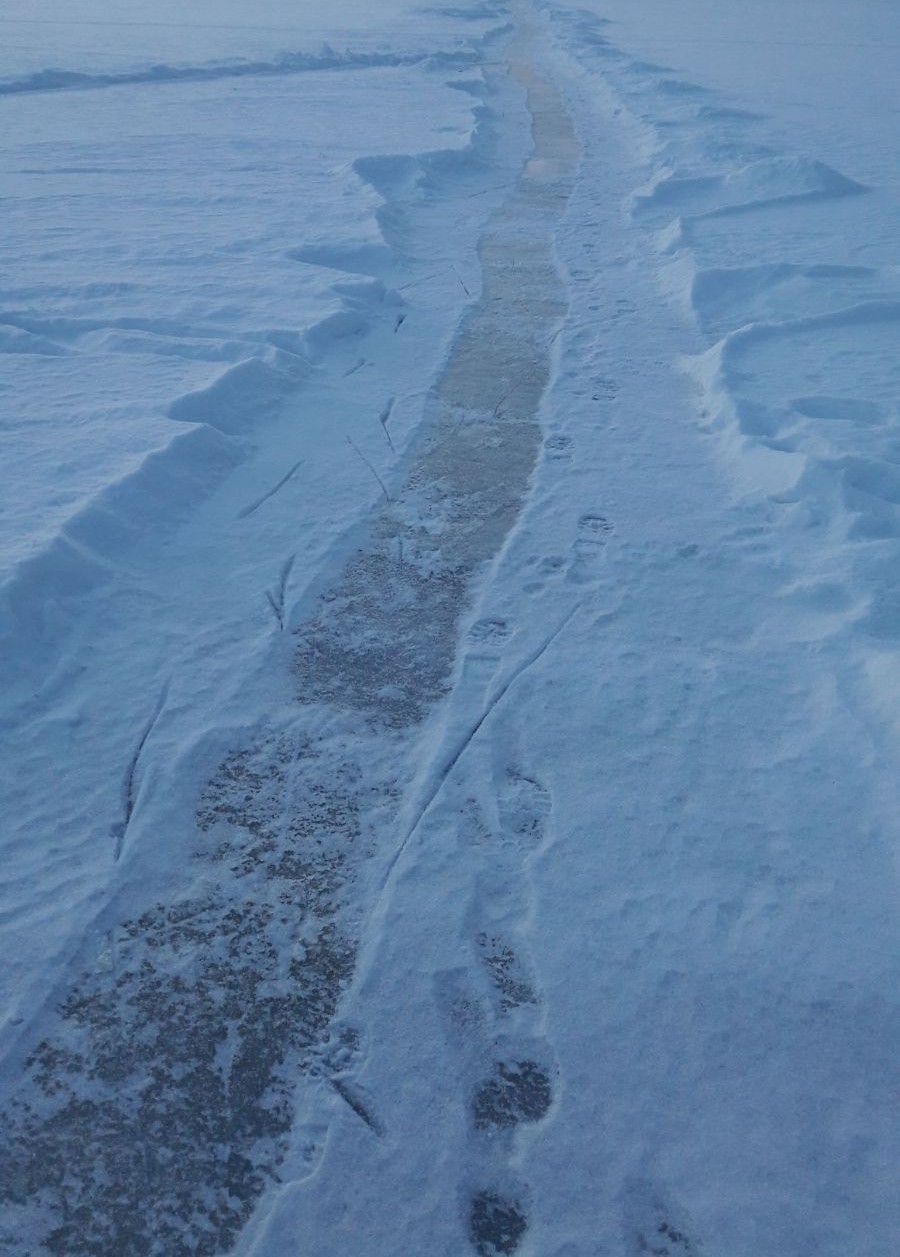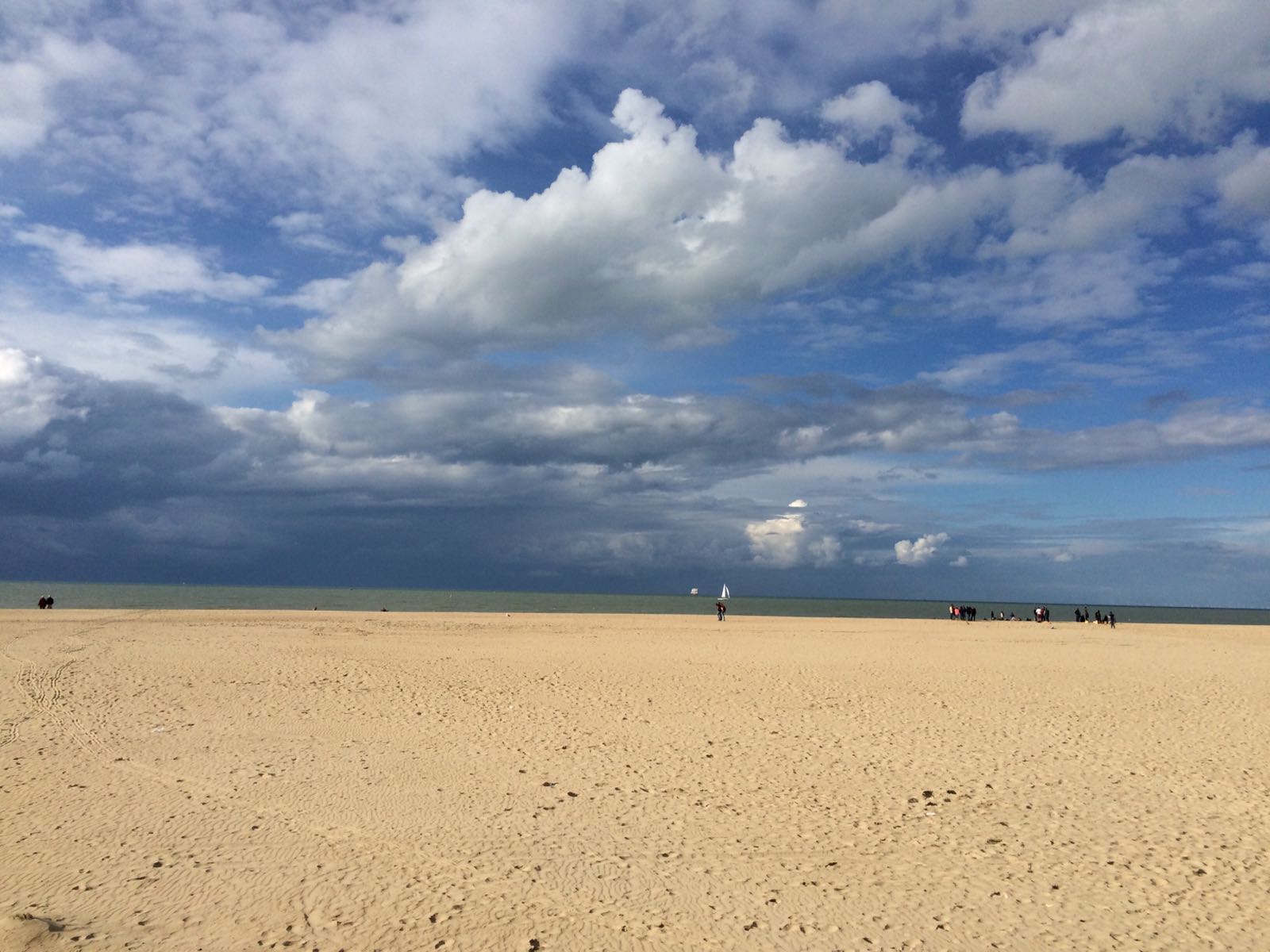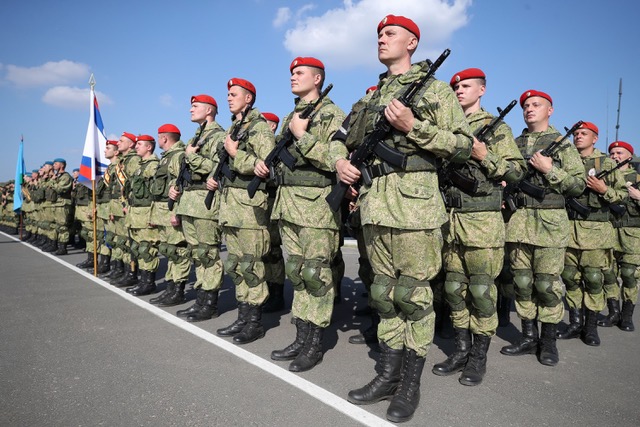A Piece of Moscow in Latvia: a Deeper Look at the Russian Embassy in Riga
On the corner of Ukrainian Independence Street in Riga – Ukrainas Neatkarības iela in Latvian – sits a building bathed in fading pastels, adorned with barbed wire and barred windows. This is the Russian Embassy to Latvia, guarded around the clock by the Latvian State Police and cordoned off with black rope that passersby are careful not to cross. Sticking out from seemingly every corner of the building’s edifice are security cameras, trained on anyone who dares to glance in the embassy’s vicinity.

